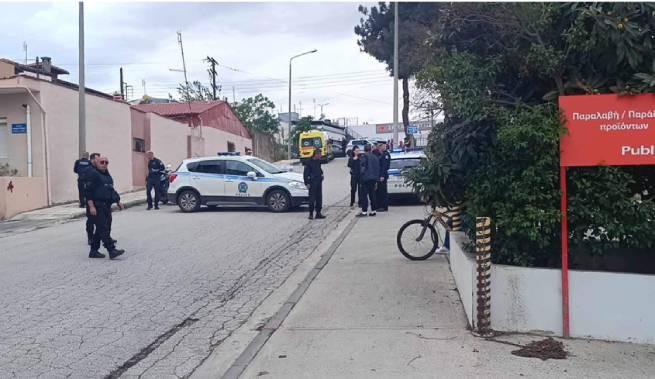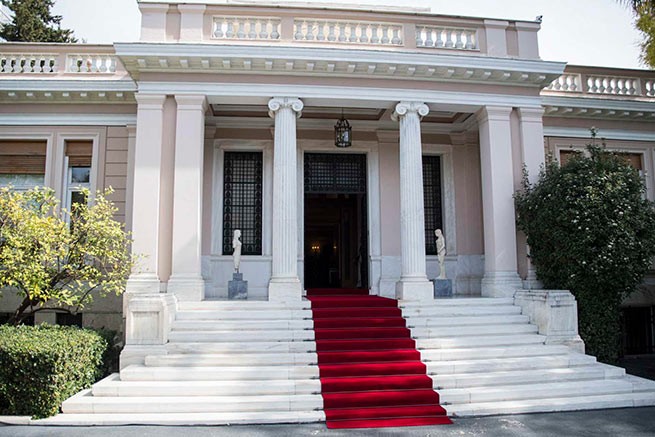Due to fears that Turkish President Recep Tayyip Erdogan may reopen Turkish borders to increase migration pressure towards the West and Greece, a meeting was held yesterday Government national security council (ΚΥΣΕΑ).
Despite the fact that Ankara has recently been cooperating on the migration issue, the Greek side cannot ignore all possible scenarios for the development of events after the outbreak of war in Israel, since the experience of 2015 in the Aegean Sea and 2020 in Evros showed the real cost of agreements with Turkey.
While this potential development (which is what Athens is considering as a worst-case scenario) would obviously not be related to Greek-Turkish relations but to Mr. Erdogan’s overarching goal of projecting himself as the leader of the Muslim world, it is clear that it could also have an impact for upcoming negotiations.
Of course, the risk of increased migration flows is real and very serious, regardless of Ankara’s steps, since a possible humanitarian crisis in Gaza and pressure on large refugee camps in Jordan could, in any case, lead to another large-scale exodus of Palestinians to Europe.
At the Congress it was decided to exercise general vigilance in connection with the possibility of terrorist attacks to targets in Greece and mobilize efforts to return from Israel other Greek citizens currently in the country. However, the source said the goal is vigilance, not panic. Specifically, the government is mobilizing based on potential impacts on the following fronts:
Migration
A decision was made to strengthen sea and land borders, fearing a possible increase in migration flows. In this regard, the coast guard and authorities in Evros, in cooperation with Frontex, will increase patrols as well as the deployment of personnel and assets. In addition, efforts are being made to ensure that existing channels with Turkey remain active, although if a political decision is made in Ankara to open the border, it goes without saying that they will fade into the background.
Terrorism
The government is concerned about the possibility that terrorists or saboteurs could strike targets linked to Israel and the United States. Therefore, the decision was made to increase police surveillance of potential targets such as the Israeli and US embassies, Jewish synagogues, schools, cemeteries and businesses representing Israeli interests.
Strengthen land and sea borders to contain flows and strengthen the National Intelligence Service.
Monitoring and information collection
The National Intelligence Service will be more involved in monitoring the situation in places such as migrant detention centers (MCCs), where a total of about 3,000 Palestinians live. In Athens, a few Palestinian organizations with about 500 members have already been mapped. ΕΥΠ is in contact with the intelligence services of the allied states, since the situation, as it has developed in recent days, is very dynamic.
So far, approximately 300 Greek citizens who were in Israel individually or as part of groups of pilgrims have returned to Greece on flights chartered by the Foreign Ministry. Greeks live or work in Israel, and if any of them express a desire to return, steps will be taken to facilitate their return. However, there don’t seem to be many such requests at the moment. Moreover, some of these citizens have a second passport and can choose flights based on their other citizenship.
Security – Defense
At yesterday’s meeting of the ΚΥΣΕΑ there was a lot of talk about the opportunities that Greece currently has and how they can be used if necessary. However, in various ways the navy is active in the Eastern Mediterranean. The frigate Salamis is part of the UNIFIL naval force off the coast of Lebanon, and the frigate Psara is participating in the NATO SNMG-2 force along with the Turkish frigate Yavuz. In addition, another frigate, the Aegean, is sailing in the Central Mediterranean as part of the European Operation Peace. At this time, no assistance has been requested from US forces in the Eastern Mediterranean under the command of the USS Gerald R. Ford, but their access to the Souda base is open. However, it is considered certain that the base will be used, especially if the carrier’s mission off the coast of Israel is extended.
International situation
The balance in the region is particularly fragile, and Athens has already gotten its first taste of instability through Foreign Minister George Gerapetritis, who was at the joint meeting of the countries EU and the Gulf Cooperation Organization. In the coming days, the Minister of National Defense Nikos Dendias is also expected to travel to Saudi Arabia, a key country for the further course of events. The government is also watching with interest developments in Jordan, which is home to millions of Palestinian refugees and is already at the limit of its endurance, and in Egypt, which is also feeling the political fallout from events in Israel and Gaza.







More Stories
Where will Greece's political leaders spend the Easter holidays?
S.Kasselakis: "Citizens' deep distrust of government"
Türkiye: a lesson about the “Blue Homeland” is being introduced in the educational program